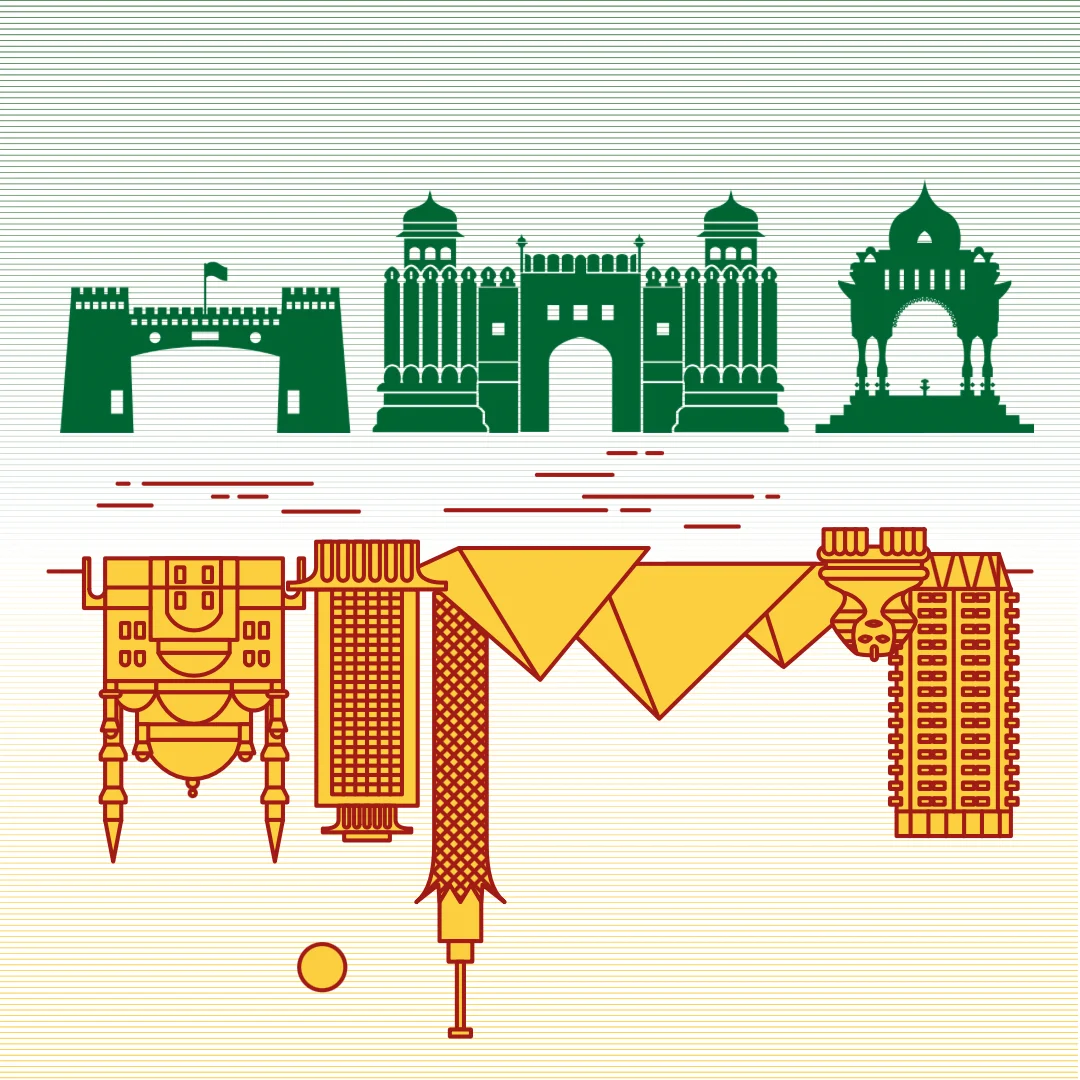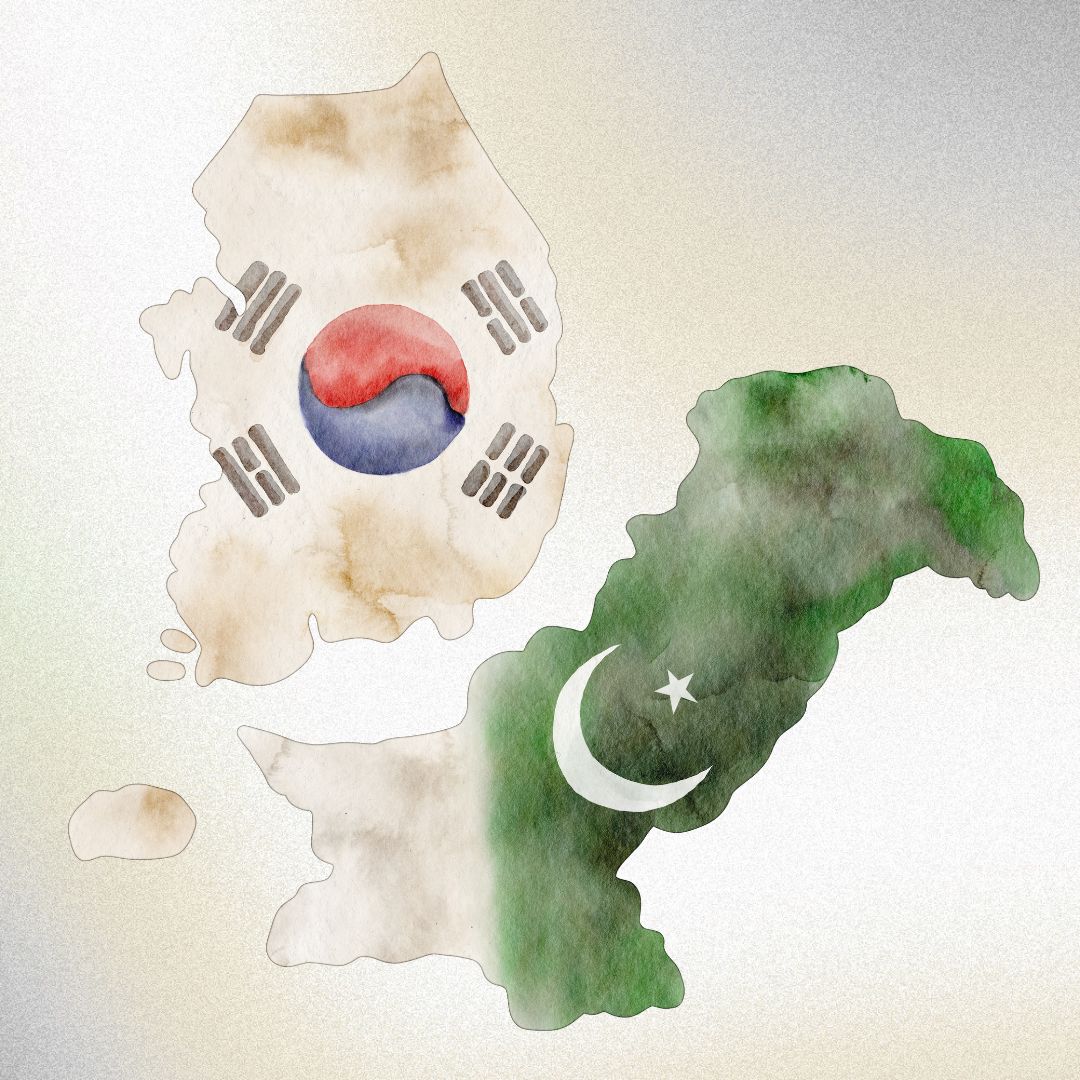I’m turning forty this year. I think about this a lot because I have the memory of someone of a certain age: I recall all sorts of random facts — the opening stanza of the Sindhi poem Hari, the words “shining on a setting sun like a pearl upon the ocean”, the saga of ‘Asia’s third largest fountain’ (you had to be there) — but not what I had last week for dinner, or any of the legislation that I once had committed to memory. But most importantly, I remember memes; the only language that explains what it is like to be from Pakistan. I was watching a reel by a Dutch influencer using the “Shabana/Pakistan is my home now” audio and I thought, what is this world? Is this what it means to — gasp — represent?
It’s pretty much indisputable at this point that memes and sketches are so good that they are international standard: friendship ended with, disappointed face man, and of course Shabana. Our land, we are often told in textbooks, is fertile, and we should now be able to add that it is also incredibly fertile for memes. Even outsiders become memes, everyone from correspondents interviewing the prime minister to catfishers in the throes of a crisis. Our memes are so good that when other countries have meme-perfect opportunities and don't rise to the occasion, I think, Pakistanis could do this better. Such as the recent spate of Indian businessmen pontificating on “productivity”. Pakistanis would have had memes so good we would break the internet, again.
Twitter and the rise of social networking websites birthed memes, at least in Pakistan. It wasn’t Orkut, or Facebook, it wasn’t even mIRC (really revealing my age here.). It was Twitter, a place where suddenly, you could be writing directly to cabinet members and celebrities; where you could find out that Shoaib Akhtar once introduced himself on the phone to Jemima Khan as “fast bowler.” But it was a place that birthed memes; everything could, and was, a meme that had its five seconds of virality, from screenshots of political speeches to the Madni tayyara, ‘Raina’s nephew’, Veena Malik’s Mufti Saab diatribe. What was perhaps startling — even then, and now, more so in retrospect and in this horrifically repressive time — is that (almost) every institution and everyone was spoofed, converted into a meme, turned into that day’s main character. Before troll armies and the far-right sucked the joy out of it, Twitter was like a constant workshopping of jokes, a non-stop standup routine. In the way that children are captivated by YouTube shows, one could lose whole stretches of time watching someone being eviscerated on Twitter in real time, to discovering something obscure — like the friendship ended with… saga — turn into cultural shorthand, to share in the comic horror of our prime minister wondering aloud on television “Why don’t they just leave then? Who is stopping them?” (This was about citizens wanting to immigrate, not hangers-on at a dinner party), to collectively learning about (and enjoying) the existence of Taher Shah.
Why are we so good at this? I’ve often tried to figure this out: it’s not that we are all innately funny or raised on the same media diet, or that this irreverence is hardcoded into us. It’s not a technical skill, in that we’re good at creating images or finding scenes from films and television interviews that encapsulate life in Pakistan. I think it’s that we are fundamentally very cognisant of the surreality of our condition, that living in Pakistan requires a permanent suspension of belief and norms, that there is no explaining this life, that none of the headlines make sense to anyone on the outside, while making complete sense within Pakistan. With other memes, there’s often always a sense that someone is trying too hard, doing just a bit too much, there’s just too much polish and self-consciousness going on there. With a Pakistani meme, you are fully aware that you are not just in on the joke, but that you are the joke. You are both participant and observer, simultaneously laughing on the outside and crying with incredible self-awareness on the inside.
It’s not just memes though where this insane sort of creativity shines. Before memes we had sketches and memorable dialogue, from everything from plays (the words “buddha ghar par hai” are imprinted on my brain, please see above for mention of how old I am) to sketch shows like Fifty Fifty to the treasure that was Tariq Aziz’s gameshow. For those of us in Karachi who had to commute to the other side of the bridge, we were greeted on arrival in Clifton with Nando’s billboards, with a ripped-from-the-headlines riff on the why did the chicken cross the road joke, or the sight of a flooded underpass, which birthed probably the first meme I remember, an email chain with a photo of the underpass, captioned Karachi’s largest swimming pool. (This was, of course, before urban flooding took place with such regularity that the underpass being flooded became a mere blip.)
But, just like everything else, we are at risk of losing this treasure. The crackdown on the internet and free speech— the little, fascistic exercise that governments love with depressing regularity — means that access to the internet is basically just as much of an illusion as it used to be in the days when you hoped the internet scratch card worked. “Content” is now split across platforms, memes are being lost to the algorithm, and in the absence of any permanent place on the internet, we have no clue of the origins or the creators. Without Twitter, we are losing not just receipts but also a self-sustaining factory, now everything is split on Instagram and TikTok and, about five years later, WhatsApp.
I recently tried to look for the origins of a meme that had gone viral just a few months ago, and there was … nothing. The thought filled me with horror: are we losing receipts for memes? What if we can't recall, from the furthest recesses of our minds, the screenshots folder, the memes that dictate our days, months, weeks, lives, years. Of course, you can make the argument that new memes will come forth etc, but surely we must create some record of it, so that along with rote learning the names of the farming seasons we also know memes. A museum of memes? A permanent exhibit of the many ways in which memes explain the Pakistani condition? Which university will step forward and offer a course in memes — and I mean this seriously. We need to study this phenomenon, this ingeniousness, the way memes have come to define our lives, our society, the way we can oscillate between disappointed face meme to qudrat ka nizaam in minutes.





